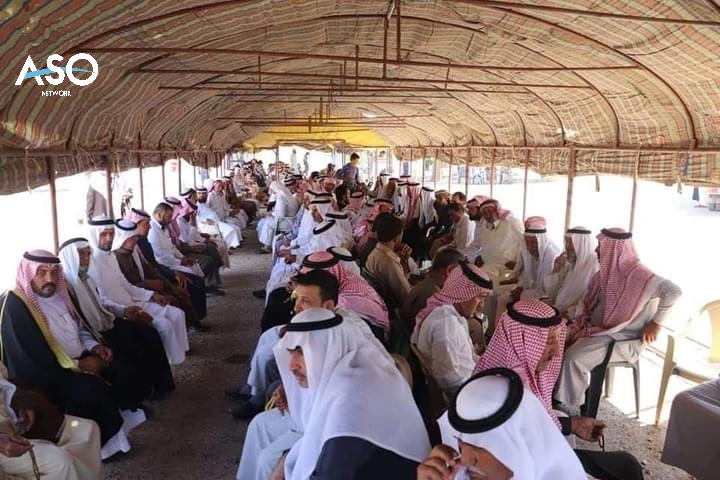News
Tabqa: Innocent victims of tribal fighting and calls to abandon tribal fanaticism that threatens societal cohesion

Last June, the city of Tabqa in North-East Syria lost five people, including children, victims of revenge and tribal fighting, which now threatens civil peace in the region.
This negative phenomenon still exists in our societies, and is usually sparked by individual mistakes that lead to major disputes and the use of firearms between families, which constitutes a real threat to society, according to one of the notables of the class.
Jamal Nhaiter, a member of the Tabqa District Council of Senat and one of the tribal notables, believes that there are three reasons for this phenomenon, the most prominent of which is tribal fanaticism that is outside the morals and customs of the tribes, as well as the lack of a strict moral and legal deterrent, in addition to the spread of the drug scourge, especially among young people, according to Nhaiter.
He pointed out that in the Senate, they follow three steps in the event of any clan conflict, which begin with cordoning off the conflict and restricting it between the parties to the conflict as individuals, removing the two clans from the conflict, and then calming the souls and seeking reconciliation by paying blood money or compensation.
The member of the Senate of Tabqa believes that the only solution to these conflicts is to abandon the tribal fanaticism that threatens peace and coexistence between the clans in the region and creates a state of violence and chaos.
Meanwhile, Ahmed Al-Mousa, a resident of the city of Tabqa, believes that the conflicts and tribal fighting in the recent period have begun to take a dangerous turn with casualties and injuries, and this is what deepens the differences and disputes between the tribes of the region, according to him.
Al-Mousa called on the Autonomous Administration, with all its judicial, legal, and security institutions, to be more resolute in applying strict laws to the perpetrators of such acts and to those who fuel tribal fanaticism that leads to violence and affects the security and stability of the region and the coexistence of its tribes and components.
In a meeting with Sheikh Abdul Muttalib Al-Batran, Chairman of the Democratic Islamic Conference in Tabqa Province, he confirmed to ASO News Network that the religion of Islam considers the crime of killing oneself to be one of the greatest sins and considers it a serious crime that affects all segments of society.
Al-Batran pointed out that the Democratic Islam Conference worked to establish reconciliation committees of clerics and sheikhs of mosques aimed at resolving differences and disputes and preventing them from leading to murder.
*The image is from the Network archive
